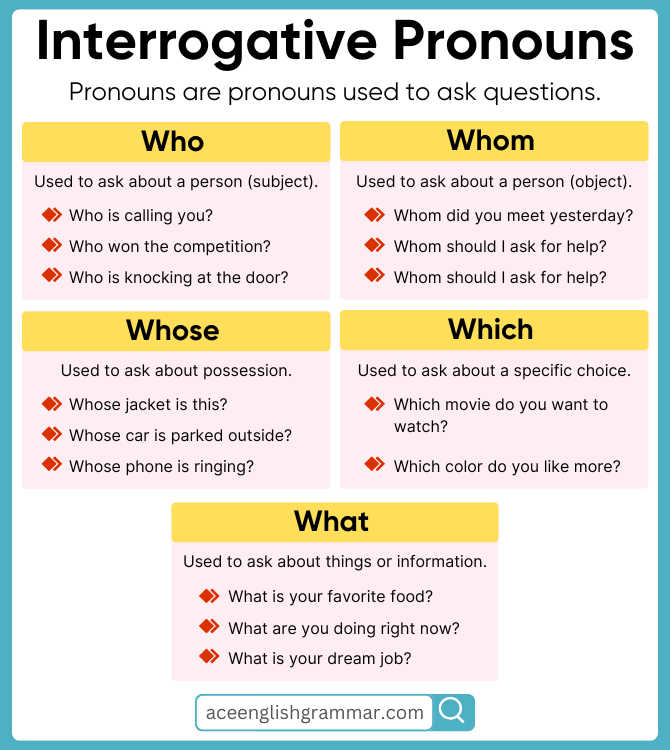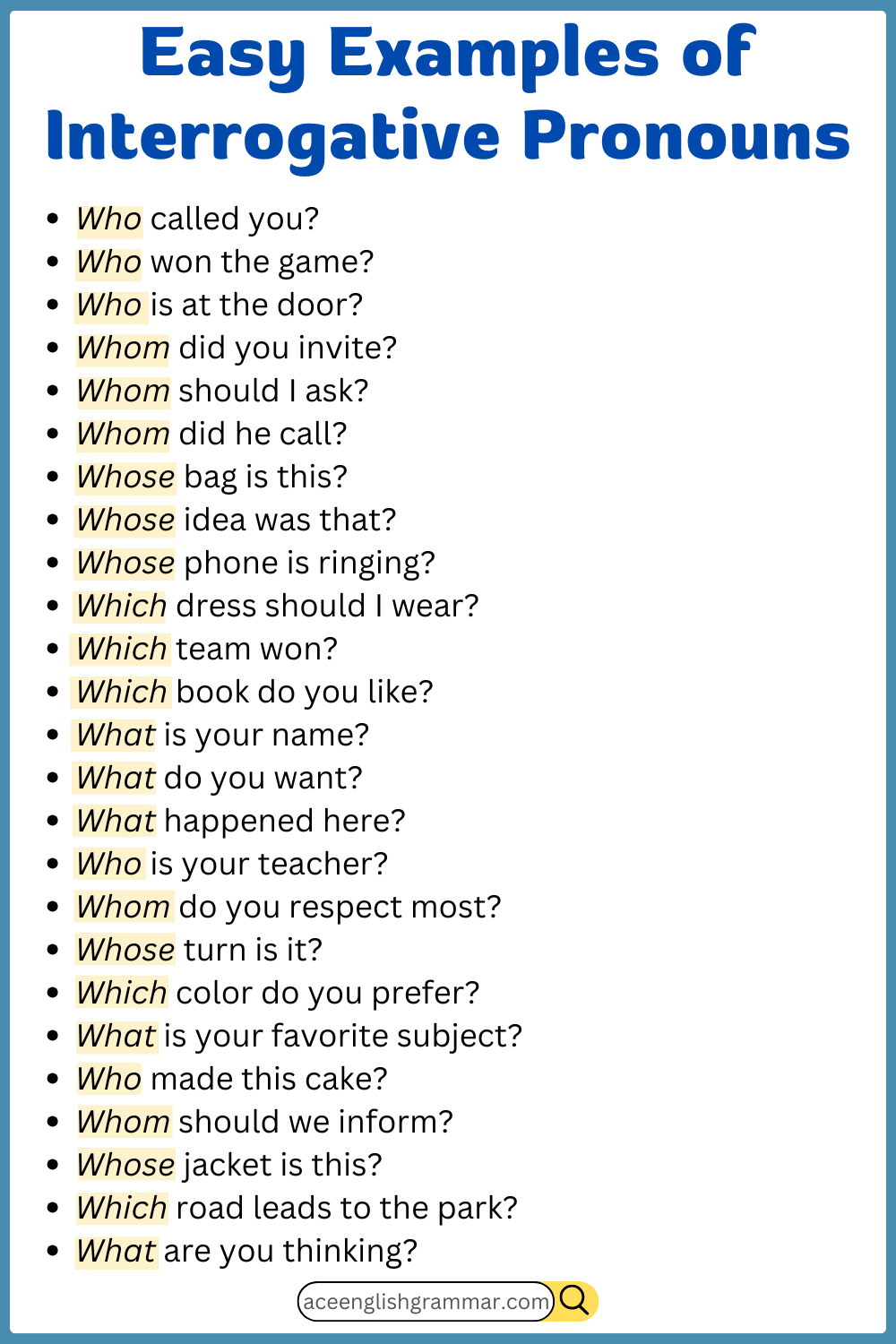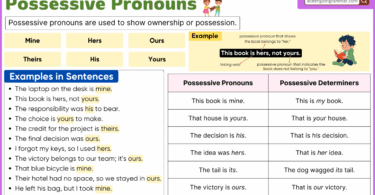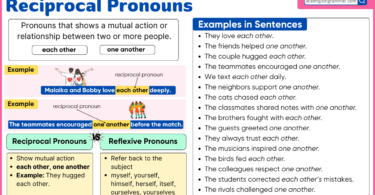Interrogative pronoun help ask questions and gather information about people, objects, or ownership. Common interrogative pronouns include who, whom, whose, which, and what. Many English learners struggle with using who vs. whom correctly. Mastering interrogative pronouns improves both writing and speaking clarity. This blog post explains interrogative pronouns with definitions, rules, and examples to enhance your understanding of pronouns and improve your grammar skills.
Interrogative pronouns are pronouns used to ask questions. They help in gathering information about people, things, or choices.
Table of Contents
List of Interrogative Pronouns
The five main interrogative pronouns in English are:
- Who (used for people as the subject)
- Whom (used for people as the object)
- Whose (used to ask about possession)
- Which (used for specific choices)
- What (used for general questions about things)
Easy Examples of Interrogative Pronouns
- Who is calling you?
- Whom did you meet yesterday?
- Whose jacket is this?
- Which movie do you want to watch?
- What is your favorite food?
- Who won the competition?
- Whom should I ask for help?
- Whose car is parked outside?
- Which color do you like more?
- What are you doing right now?

How They Help in Forming Questions
Interrogative pronouns are the foundation of questions. They replace unknown elements in a sentence and allow speakers to seek information.
- Who won the match? → The answer replaces “who” with a subject (e.g., “Ali won the match.”)
- What do you need? → The answer specifies the object (e.g., “I need a pen.”)
Who vs. Whom – When to Use Each
- Who is used as the subject of a sentence.
- Example: Who is calling you?
- Whom is used as the object of a verb or preposition.
- Example: Whom did you call?
Which vs. What – Choosing the Right Pronoun
- Which is used when there is a limited number of choices.
- Example: Which car do you prefer—red or blue?
- What is used when there are unlimited possibilities.
- Example: What is your favorite color?
Real-Life Examples of Interrogative Pronouns in Sentences
- Who is responsible for this project?
- Whom did you meet at the conference?
- Whose phone is ringing?
- Which restaurant do you recommend?
- What are you thinking about?
- Who will attend the seminar?
- Whom should I ask for assistance?
- Whose idea was this?
- Which of these books belongs to you?
- What is the capital of France?
Interrogative Pronoun vs. Interrogative Adjective
| Feature | Interrogative Pronoun | Interrogative Adjective |
|---|---|---|
| Function | Replace nouns in questions | Modify nouns in questions |
| Examples | Who, Whom, Whose, Which, What | Which book, What time, Whose bag |
| Usage | “Who is calling?” | “Which book do you like?” |
Exercise Fill in the Blanks with the Correct Interrogative Pronoun
- _____ is knocking at the door?
- _____ did you invite to the party?
- _____ phone is lying on the table?
- _____ of these dresses do you like more?
- _____ do you want to eat for dinner?
- _____ wrote this amazing novel?
- _____ should I ask for help regarding the project?
- _____ is the best solution for this problem?
- _____ would you like to take with you on the trip?
- _____ is responsible for submitting the report?
Answers:
- Who
- Whom
- Whose
- Which
- What
- Who
- Whom
- What
- Which
- Who
FAQs on Interrogative Pronouns
“Who” is the subject, while “whom” is the object. Use “who” when referring to the doer of the action and “whom” when referring to the receiver.
No, “what” is used for open-ended questions, while “which” is used for specific choices.
Interrogative pronoun ask question, while relative pronouns connect clauses (e.g., “The boy who won the race is my friend.”).
“He asked me who was at the door.”
No, “whose” can also be an adjective (e.g., “Whose book is this?”).
Conclusion
Interrogative pronoun is essential in forming questions and gathering information. They replace unknown elements in sentences and help structure clear, grammatically correct questions. Understanding their correct usage ensures effective communication in English.
Read More



